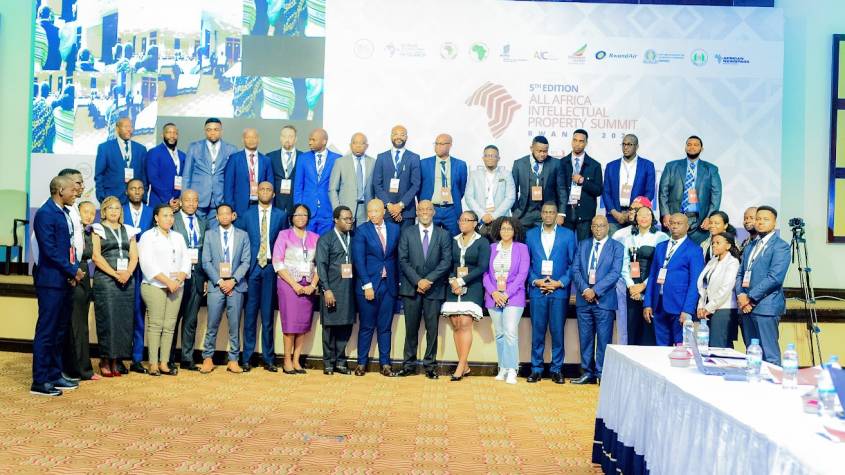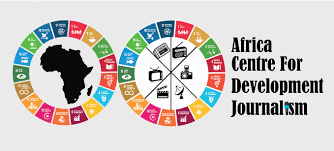IN-DEPTH | 5th All Africa IP Summit: Leveraging IP Ecosystem for Africa’s Sustainable Development
The All Africa Intellectual Property Summit 2024, held from November 28 to 30 in Kigali, Rwanda, underscored the critical role of IP in fostering innovation, driving industrial growth, highlighting IP’s role in innovation, education, economic growth, and cultural preservation, tackling poverty, improving SME market access, and fostering agricultural innovation in Africa.
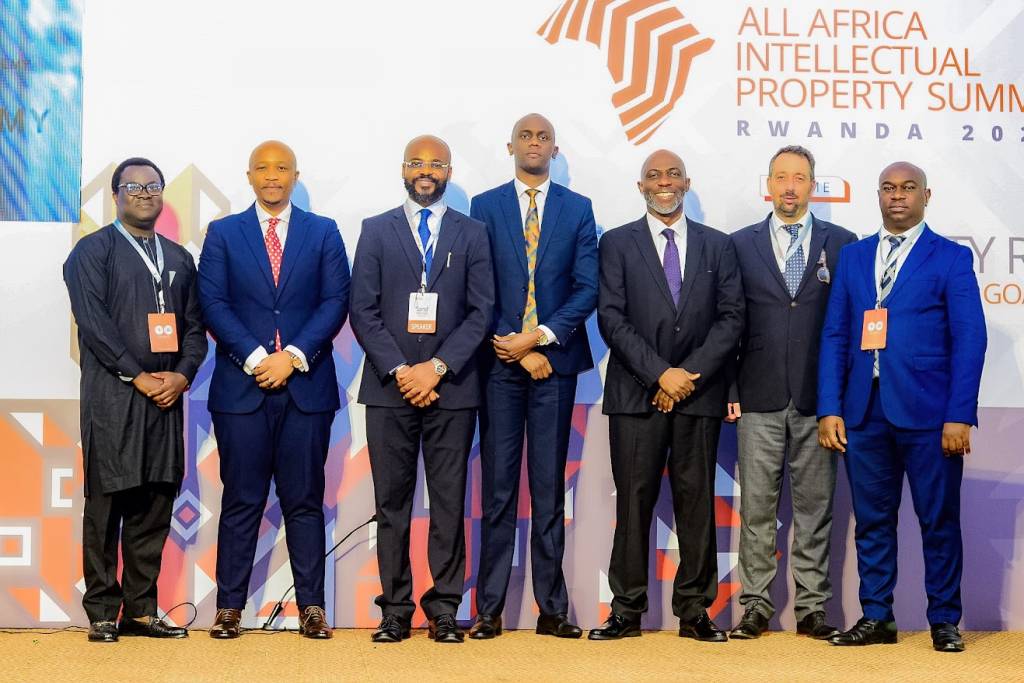
The African Intellectual Property Centre (Africa IP Centre) is a think-tank established in 2019 by the International Trade and Research Centre (ITRC) as a subsidiary dedicated to harmonizing and strengthening Africa’s intellectual property (IP) ecosystem. To this end, the IP Centre’s mission is to promote Africa-focused IP policies and foster collaboration among African IP stakeholders for the continent’s socio-economic development.
The Africa IP Centre’s mission is rooted in fostering collaboration among diverse stakeholders, including policymakers, the private sector, creatives, SMEs, academia, and NGOs. Through its initiatives, such as the annual IPR dialogues and All Africa IP conferences, the Centre fosters awareness, builds institutional capacity, and facilitates stakeholder engagement to ensure IP benefits reach all sectors of African society.
Against this backdrop, the All Africa IP Summit, a flagship initiative of the Africa IP Centre, seeks to strengthen the continent’s IP ecosystem and align it with the Sustainable Development Goals (SDGs). Themed: “Intellectual Property Rights (IPRs): The Catalyst for Sustainable Development Goals in Africa,” 2024 All Africa IP Summit held November 28 – 30 in Kigali, Rwanda, convened IP stakeholders, namely policymakers, legal experts, entrepreneurs, innovators, and academics from across Africa and beyond.
Thus, delegates at the 5th All Africa IP Summit explored harmonization of IP laws under the African Continental Free Trade Area (AfCFTA), the use of IP as a financial asset, and the integration of technology in IP protection. The convening also underscored the importance of regional cooperation and capacity building to unlock the continent’s potential for innovation and economic growth through IP. Over three days, Summit delegates explored practical strategies for aligning IP policies with Africa’s socio-economic realities, paving the way for a more inclusive and sustainable future.
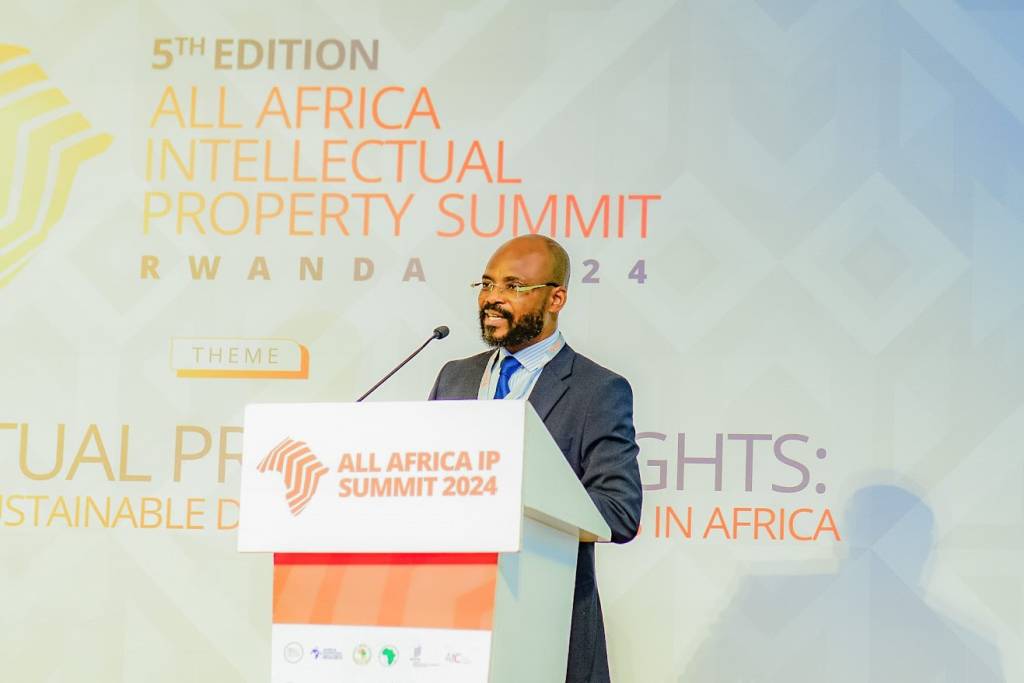
“We’re Committed to Strengthening Africa’s IP Systems” – IP Summit Chair
In his welcome address, Mr. Sand Mba-Kalu, Chair of the 2024 All Africa IP Summit Organising Committee, underscored the collective responsibility of all African IP stakeholders to reshape Africa’s intellectual property (IP) landscape, highlighting IP’s crucial role in sustaining international trade and innovation, hence the need for an IP ecosystem that fully empowers Africans.
The Summit Chair recalled the history of establishing the Africa Intellectual Property Centre in 2019 as an affiliate of the International Trade and Research Centre, noting its commitment to strengthening IP systems through capacity-building, awareness, and technical assistance. Subsequently, he said the IP Centre has since become a key institution advancing solutions to Africa’s IP challenges.
Mr Mba-Kalu added that this year’s theme, “Intellectual Property Rights: The Catalyst for Sustainable Development Goals (SDGs) in Africa,” positions IP as a driver for the SDGs in Africa. To this end, Mr Mba-Kalu said the Summit sought to foster an inclusive IP ecosystem tailored to Africa’s unique context as well as promote innovation for economic growth and socio-cultural development.
“We aim to explore initiatives focusing on cultural preservation, technological advancement, and sustainable development. This includes understanding the AfCFTA IP Protocol and its potential to transform trade and innovation. We will inspire change and foster innovation across Africa. We will build networks and craft strategies to make Intellectual Property a cornerstone of Africa’s sustainable development. Let us embark on this journey together with purpose and determination,” he said.
Mba-Kalu said the 5th All Africa IP Summit sought to raise awareness about the role of intellectual property in fostering innovation and Africa’s economic development; Foster dialogue on key issues and challenges related to IP protection, enforcement, and commercialization in Africa; Promote collaboration and networking among policymakers, industry leaders, academics, and practitioners in Africa’s IP ecosystem; as well as increase general awareness about IP among Africa’s private sector stakeholders.
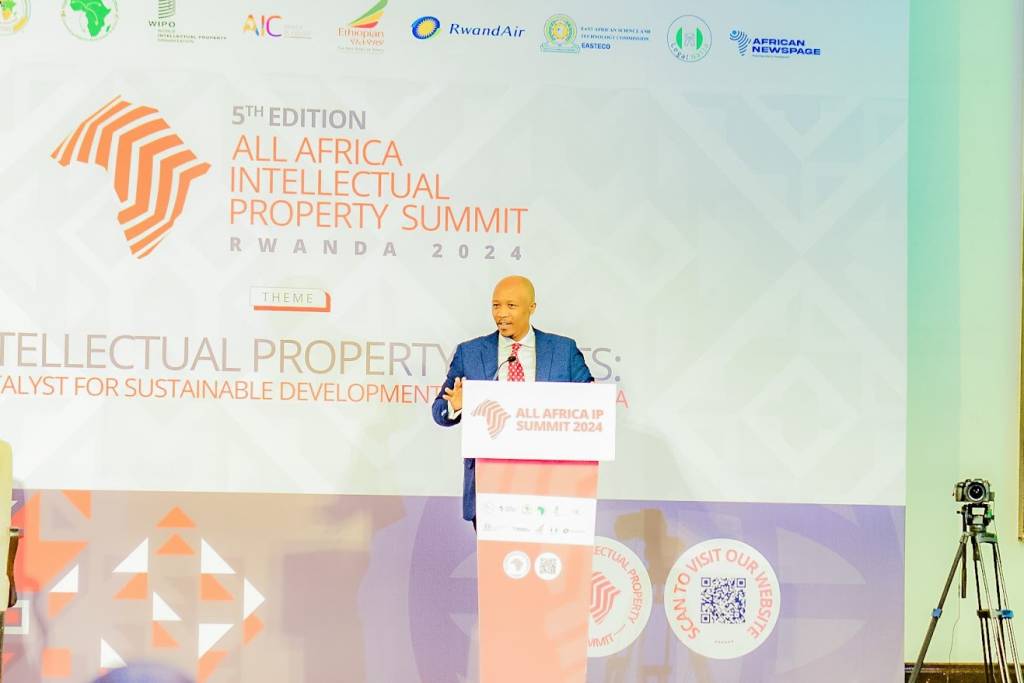
“IP Rights Mustn’t Exist in Isolation but Part of Broader Ecosystem” – AfCFTA SG
In his address, AfCFTA Secretary-General Wamkele Mene reflected on Africa’s ongoing struggle to effectively utilize intellectual property rights (IPRs) for development, despite decades of discussions and numerous tools provided by global organizations like World Intellectual Property Organisation (WIPO). He wondered why Africa remains at the bottom of the global IP ladder emphasizing the need to address systemic challenges hindering progress.
“Imagine the billions spent on technical assistance for Africa. Where is the impact? Workshops alone will not change the situation. We need administrative capacity to implement changes and regulatory capacity to weave IP policies into national systems. Purposeful infrastructure is essential for meaningful IP frameworks. Our investments must ensure measurable outcomes and sustainable development,” said Mene who was represented by Dr. Tsotetsi Makong, Chief Technical Advisor, Capacity Building, Trade Policy, and Negotiations.
Mr Mene said the AfCFTA Secretariat has provided the continent with an IP Protocol, however, he stressed that IPRs must not exist in isolation but as part of a broader ecosystem that includes manufacturing, value chains, and policy frameworks, calling for a shift towards the creation, protection, maintenance, commercialization, and enforcement of robust IP systems.
The AfCFTA Secretary-General underscored the importance of aligning IP strategies with Africa’s unique needs, noting the potential impact of the AfCFTA on the continent’s economic integration and innovation ecosystem. “It cannot be intellectual property rights for the sake of intellectual property rights. At the AfCFTA Secretariat, we are creating an ecosystem of interoperable instruments to trigger beneficiation from IPR among other measures. Markets are opening, and IPR must be a part of this ecosystem.”
Mene noted the urgency to finalize the annexes of the AfCFTA IP Protocol by 2025: “We must seize this opportunity. The AfCFTA is Africa’s insurance policy. Missing this moment could mean waiting for another century. As global supply chains and partnerships shift, Africa must define its place. We need annexes that address the continent’s realities and transform population growth into an opportunity for innovation and economic growth.”
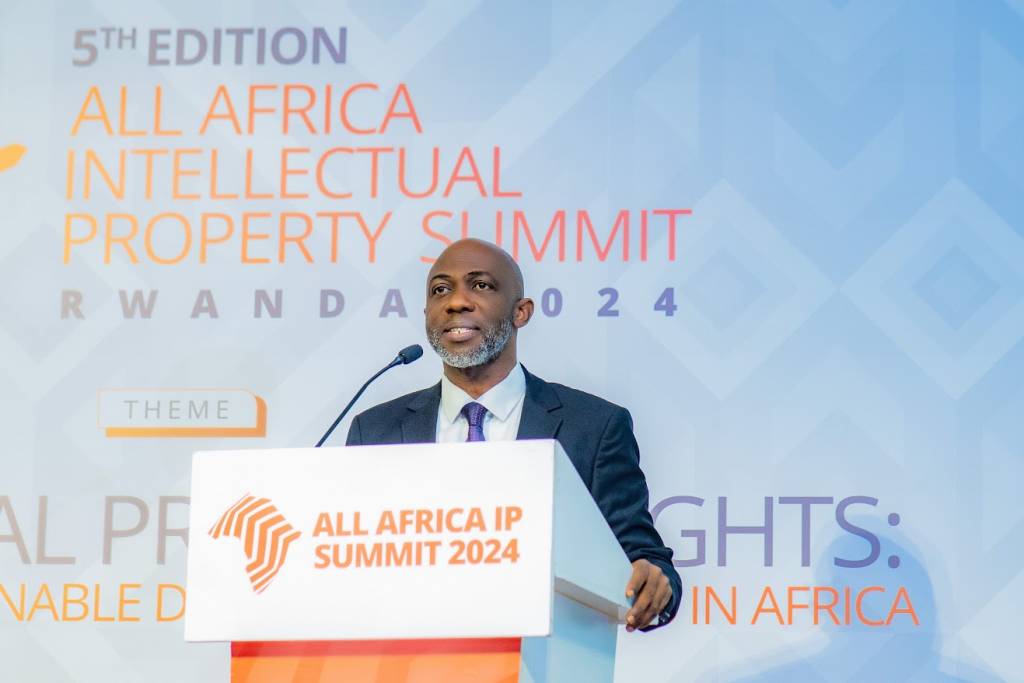
“Africa’s Future Rests on Safeguarding IP Rights” – Nigeria AfCFTA Chief
In his goodwill message Mr Olusegun Awolowo, National Coordinator of Nigeria’s AfCFTA Coordination Office (represented by Mr. Olusegun Olutayo, Lead, Trade Enablement) underscored the importance of leveraging IP rights to position Africa as a hub of innovation and creativity and commended the Africa IP Centre for its dedication to advancing Africa’s IP systems emphasizing the protection of IP as vital to unlocking Africa’s economic potential.
Mr Awolowo said while IP encompasses patents, trademarks, and copyrights, the key challenge lies in ensuring its protection. “Such protection not only guarantees innovators’ rights but also emboldens entrepreneurs to think bigger and innovate further. A thriving IP framework, he noted, fosters a culture of creativity, drives prosperity, and ensures the tangible benefits of IP are realized.”
Mr Awolowo therefore proposed two strategic recommendations to strengthen Africa’s IP landscape: firstly, developing a Pan-African IP strategy and index to harmonize protections across the continent, and secondly, investing in capacity-building programs to enhance expertise in IP law and enforcement. He called for a unified approach to align IP policies with AfCFTA objectives under the broader Agenda 2063.
“Let us recognize that Intellectual Property Rights, while intangible, hold the key to tangible benefits for our people. The link between IP and job creation is undeniable as thriving innovation ecosystems generate employment and drive economic growth. It is time to popularize intellectual property rights—to the left, to the right, to the front, across every corner of our continent,” said Mr Awolowo.
The Nigeria AfCFTA chief said Africa’s economic future “rests squarely on our ability to safeguard these intellectual assets. Fostering a culture of creativity and innovation that drives prosperity. Innovators may pass, but their innovations must endure. With intellectual property, we must ensure Africa’s creative and innovative spirit thrives, creating lasting prosperity for generations to come.”
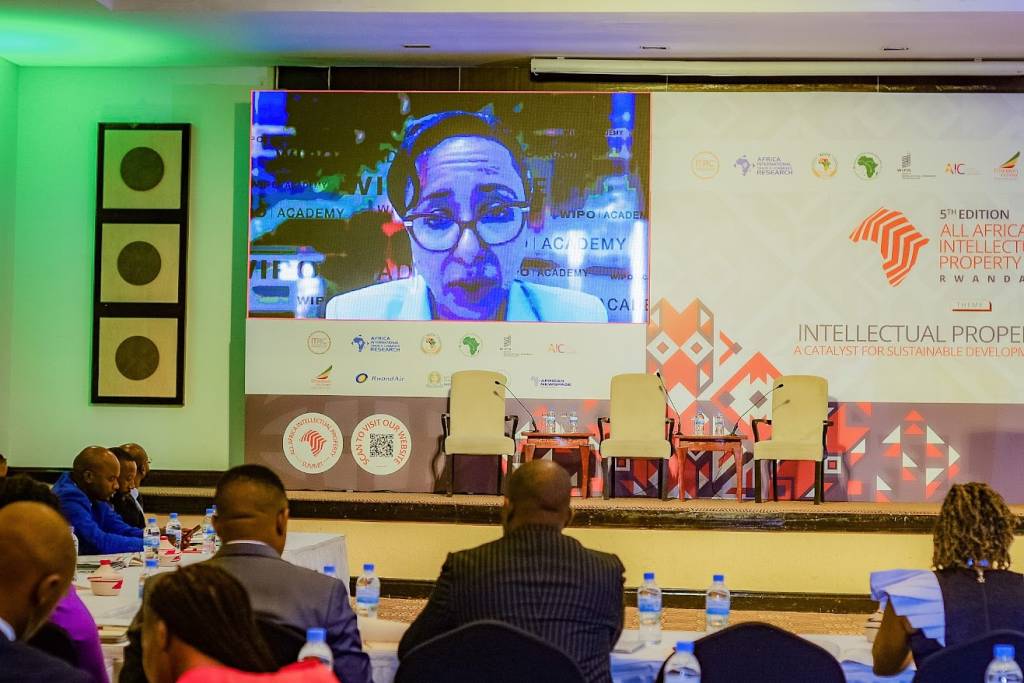
“Integrating IP in Education Make Africa’s Youth Innovative” – WIPO Academy
In her remarks, Ms. Altayework Tedla Desta, Director of the IP eLearning Section at World Intellectual Property (WIPO) Academy, described the All Africa IP Summit as a unique platform for dialogue on creating a robust IP ecosystem in Africa and a unique opportunity to unlock Africa’s immense potential in an idea-driven economy.
Ms Desta therefore said Africa must position itself to benefit from the opportunities offered by IP by building a sustainable IP ecosystem, highlighting IP’s transformative potential of Africa’s youth, hence the importance of integrating IP education into the curriculum of schools, colleges, and universities to equip the next generation of Africa’s leaders with the tools to innovate and compete globally.
In this direction, Ms Desta underscored the commitment of WIPO Academy to advancing IP knowledge among Africa’s youth – who represent over 60% of the continent’s population – through capacity-building programs. “IP is critical to fostering creativity and innovation. Africa’s education system should focus on integrating cutting-edge subjects like artificial intelligence and technology into IP curricula to benefit various sectors beyond law.”
She therefore urged African IP stakeholders such as educators, policymakers, and private sector leaders to collaborate in creating IP policy frameworks that nurture creativity and support innovators to thrive. “This partnership would help bridge the gap between education and industry, ensuring inclusivity and access to skills development. The next generation of leaders must be equipped to transform Africa into a global innovation powerhouse.
“To achieve this, IP knowledge should be accessible to youth, fostering their creativity and retaining the value of their ideas. We must connect efforts across generations. Teachers, mentors, and curriculum developers play a transformative role in shaping Africa’s future. Collaboration between educators and industry leaders can inspire and develop leadership in creativity and innovation,” Ms Desta concluded.
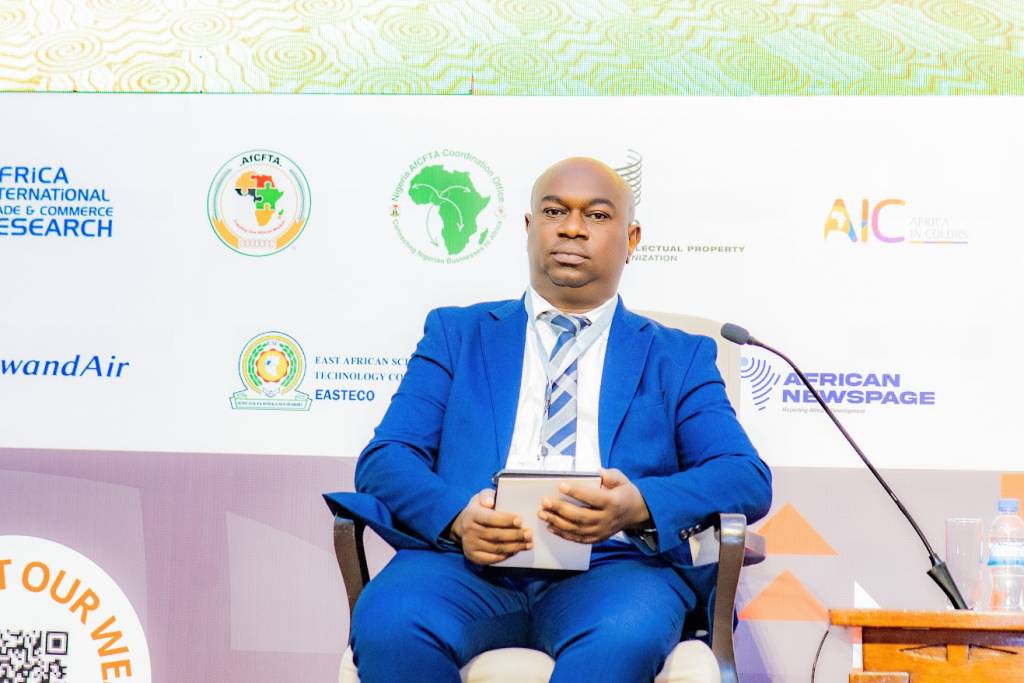
“IPRs Critical for Incentivizing Creativity, Innovation” – EASTECO Scribe
In his remarks Dr. Sylvance Okoth, Executive Secretary of the East African Science and Technology Commission (EASTECO) (Represented by Prof. Tatien Masharabu) reaffirmed EASTECO’s commitment to promoting the application of science and technology across the East African Community (EAC) states, emphasizing that Science, Technology, and Innovation are at the heart of the EAC’s Vision 2050 which is inclusive of the EAC Regional IP Policy (2023–2030) that seeks to create a dynamic IP environment in East Africa.
“This policy creates an enabling environment for the effective utilization of the IP system, which is essential for socio-economic transformation. IPRs are critical for incentivizing creativity, enabling technology transfer, and driving economic growth. Harmonized regional IP frameworks will not only facilitate international trade but also strengthen capacity building, innovation ecosystems, and infrastructure development,” he said.
The EASTECO chief described IPRs as the cornerstone of social, cultural, and economic advancement. “They drive innovation and value addition, which are key to economic transformation in the region. A strong IP framework can unlock Africa’s creative and innovative capabilities, positioning the continent as a global leader in innovation. This is not just about protecting rights but empowering Africa to achieve its socio-economic aspirations.”
Dr Okoth also stressed the role of IPRs in incentivizing creativity, facilitating technology transfer, and enhancing value addition. “A harmonized regional IP framework will ease international trade, strengthen innovation ecosystems, and bolster infrastructure development. Intellectual property rights are a cornerstone for social, cultural, and economic advancement, driving sustainable development across the African region, thus, I call on stakeholders to embrace IP as a catalyst for growth.”
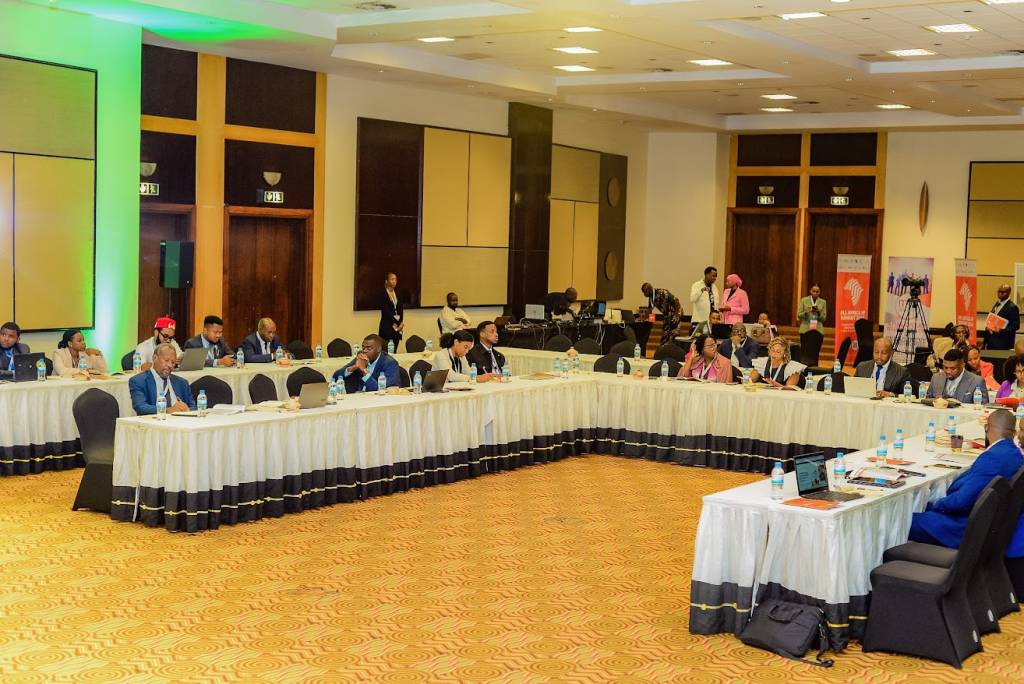
Towards a Robust IP Ecosystem in Africa
Africa’s current IP ecosystem is bedeviled by several challenges that inhibit its effectiveness, which has resulted in the continent not being optimal in leveraging IP to advance socioeconomic development. Moreover, Africa’s IP systems struggle with enforcement and lack the necessary infrastructure to support local innovators. Consequently, in 2020, Africa accounted for only 0.5% of global patent applications, starkly contrasting Asia’s 66.6% and North America’s 19.3%.
According to the UN, this low-level of patent protection in Africa is a result of several factors namely weak science and technology capacity, inadequate research facilities and funding, inadequate intellectual property awareness and the high cost of processing patent applications. Other challenges are the complexity of the maintenance of patents, the cost of enforcement of rights in case of infringement and subsequent patent litigations, process complexity, and limited institutional support for translating research into marketable technologies.
Against this backdrop, discussions at the Summit emphasized the critical role of IP in fostering innovation, driving industrial growth, underscoring IP’s role in innovation, education, economic growth, and cultural preservation, tackling poverty, improving SME market access, and fostering agricultural innovation. Thus, one of the Summit’s key recommendations was the need for universities to integrate IP into research commercialization and knowledge dissemination.
Moreover, the Summit delegates proposed simplifying IP registration, leveraging AI for trademark searches, and fostering university-industry collaboration as well as the creation of Africa-centric IP frameworks to protect traditional knowledge and biodiversity, with regional cooperation under initiatives like the AfCFTA IP Protocol. The Summit particularly underscored the significance of educational initiatives targeting youth and women in STEM fields, to drive both innovation and gender equality
The Summit also recommended partnerships between universities, research institutions, and SMEs as vital for bridging the gap between innovation and commercialization and emphasized the need for simplified processes and targeted awareness campaigns to help businesses understand and benefit from IP protections. Leveraging trademarks and geographical indications, the delegates said, can protect and promote these assets globally.
The IP Summit also recommended streamlining and making IP registration procedures affordable as well as providing user-friendly resources to guide SMEs through IP generation, protection, and commercialization. It also encouraged governments to provide IP research provide grants while universities focus on translating their research into commercial products. Another key reference was adopting AI to improve IP management, enhance efficiency in trademark searches, and provide accessible patent databases to facilitate innovation.
The 2024 All Africa IP Summit concluded with a commitment from all delegates to continue advocating for IP-driven solutions to Africa’s most pressing development challenges. The climax of the Summit was the selection of the host country for the Summit’s 2025 edition through an open voting process. Senegal emerged first with over 54% of the votes followed by Kenya (29%) and then Uganda (17%). Thus, the 6th All Africa IP Summit will be held in Dakar, Senegal come November 12-14th, 2025.
Are you interested in attending or sponsoring the 6th Annual Africa IP Summit in Dakar, Senegal? Contact africaipsummit@it-rc.org or +2348180381825 (WhatsApp).

